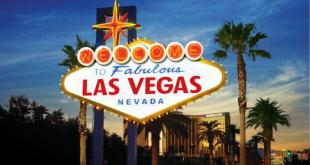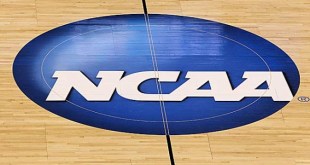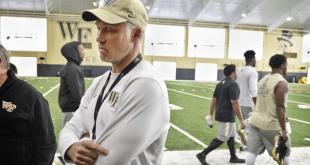It’s been a tumultuous few weeks for the “daily fantasy sports” (DFS) industry. Among other things, there has been an investigation into the potential misuse of non-public data by a major DFS company employee;[i] an inquiry into DFS by the New York Attorney General; a “preliminary” probe by the FBI and U.S. Department of Justice into the business model of DFS; the filing of numerous class actions against major DFS operators; and reports that a federal grand jury was convened in Florida by the U.S. Attorney’s Office to consider potential violations of federal and state law.
One of the more interesting recent developments occurred late Thursday in Nevada, when the Nevada Attorney General and Nevada Gaming Control Board (NGCB) concluded that DFS constitutes “gambling” under state law. According to a statement by A.G. Burnett, Chairman of the NGCB, “specifically, DFS meets the definition of a game or gambling game pursuant to Chapter 463 of the Nevada Revised Statutes.” Nevada’s conclusion, however, does not make DFS illegal. As Nevada is one of the few states in which it is permissible to gamble on sports, operators may still offer DFS in the state if they obtain a license to operate a sports pool issued by the NGCB.
I have previously written about the legality of DFS in depth. While sports betting or wagering is generally prohibited at the federal level by the Professional and Amateur Sports Prohibition Act of 1992 (PASPA), DFS’ legality is largely predicated on another federal law, the Uniform Internet Gambling Enforcement Act of 2006 (UIGEA). UIGEA made the processing of certain online gambling transactions illegal. Critically, however, UIGEA explicitly exempts from its definition of “bet or wager” participation in fantasy sports contests that meet a number of requirements. Where a DFS contest meets each of the statute’s express carve-out requirements, it likely does not run afoul of UIGEA’s prohibitions.[ii]
The analysis, however, does not stop at the federal level. Federal law can supplement state law, but, generally speaking, federal law does not make a form of gambling legal which would otherwise be illegal under state law. UIGEA’s “Rule of Construction” makes clear that the statute does not alter, limit, or extend any “State law … prohibiting, permitting, or regulating gambling within the United States.” States are therefore free to make their own determinations as to what constitutes illegal gambling activities and how they wish to regulate those activities within their borders.[iii] This presents unique challenges to fantasy sports businesses, because the laws, and standards used by courts to decipher these laws, can vary dramatically on a state-by-state basis.
That’s where Nevada comes into play. The NGCB’s conclusion was based on a Memorandum issued by the Office of the Nevada Attorney General, in which it analyzed whether DFS constitute gambling games, sports pools, or lotteries under state law. According to Nevada Attorney General Adam Laxalt, DFS is a gambling game and sports pool under Nevada law, which requires a license to operate within the state. In the wake of the conclusions by the Nevada Attorney General and statement by the NGCB, most DFS operators have made the decision to cease operations in Nevada.[iv]
While the Nevada Attorney General’s opinion is not binding on courts and does not carry official force in other states, it could still have a significant impact in other states. Very few state attorneys general have considered the question of DFS legality under their own anti-gambling or anti-lottery laws. It’s therefore possible that the Memorandum issued by Mr. Laxalt could be used as persuasive authority in analyzing DFS in their own jurisdictions.
In examining Nevada law, the Nevada Attorney General further concluded that, “the determination of whether an activity constitutes a gambling game or a sports pool under Nevada law does not require analysis of the level of skill involved.”[v] In many other states, however, the question of whether skill or chance is involved in a game is often important in the context of addressing the legality of fantasy sports. In those states where there is no specific legislation authorizing fantasy sports contests played for money, their legality often depends on the state’s interpretation of the degree of “chance” vs. “relative knowledge” or “skill” involved in the contests at issue. For example, Massachusetts is one of a majority of states in which a contest for money likely does not contravene state anti-gambling or anti-lottery laws if the likelihood of winning is “predominantly” determined by an application of a contest participant’s skill.[vi]
Following a review of DFS, Massachusetts Attorney General Maura Healey recently concluded that, “there were no federal or state laws that prohibit daily fantasy sports sites from operating.” Like the Nevada Attorney General opinion, Ms. Healey’s statement carries no legal authority outside Massachusetts, but her forceful affirmation of the legality of fantasy sports may still resonate in other states, especially given Ms. Healey’s noted opposition to gambling expansion and her state’s use of the “predominant factor” test in analyzing games of skill vs. chance. It may also influence the actions of lawmakers, as was the case in Kansas, when the legislature enacted a law clarifying the legality of DFS following a formal opinion of the Kansas Attorney General in April 2015.[vii] According to the Kansas Attorney General Derek Schmidt, fantasy sports contests that meet criteria similar to that laid out in UIEGA are games of skill, and therefore do not constitute illegal lotteries in Kansas. The Attorney General’s determination was “bolstered by the fact that the UIGEA also specifically excludes fantasy sports leagues from the federal definition of betting.”
Given the mainstream media’s recent scrutiny of the industry, it is certain that other states, whether through attorneys general or state legislators, will continue speak to the issue of DFS legality. Nevada’s analysis will likely be taken into account, but so will those conclusions reached by the attorneys general in states such as Massachusetts and Kansas. What separates gambling from non-gambling activities in many states is a subjective determination and therefore it is often ultimately a matter of opinion. As such, as the laws and regulations that govern DFS contests continue to evolve, it is critical for fantasy sports companies to ensure they are employing best practices in their operations and to stay apprised of the developing legal landscape.
[i] A third-party review was commissioned, and its report concluded that the employee did not engage in any wrongdoing in connection with the inadvertent leak of sensitive data.
[ii] Certainly other federal laws, such as the Wire Act, Illegal Gambling Business Act, and Travel Act, can also significantly affect the distribution and operation of fantasy sports.
[iii] Some state laws, including ones recently passed in Maryland and Kansas, follow UIGEA’s lead in setting up the requisite criteria to determine legality. Other states, such as in Florida, Louisiana, and most recently, Nevada, have issued specific attorney general opinions concluding that certain forms of fantasy sports contests played for money are illegal under those states’ laws.
[iv] Though many operators could apply for a license to legally operate a sports pool in Nevada, the decision represents something of a Catch-22. Nevada is free to regulate or authorize sports betting, but other states may be precluded from doing the same under PASPA. Accordingly, submitting to licensure in Nevada may be viewed as an implicit admission that the DFS contests offered are sports gambling, which, while permissible in Nevada, would make the DFS games illegal to operate in most jurisdictions.
[v] According to the Nevada Attorney General, a recent state law, Senate Bill (SB) 9, which was passed during the 2015 Nevada Legislative Session, distinguishes between “games of skill, games of chance, and hybrid games of both skill,” but recognizes that “all three are gambling games.”
[vi] See Com. v. Lake, 317 Mass. 264, 267 (Mass. 1944) (holding that “a game is … considered a lottery if the element of chance predominates and not a lottery if the element of skill predominates.); see also Com. v. Stewart-Johnson, 78 Mass.App.Ct. 592, 595-96 (2011) (same).
[vii] At the time of the Kansas Attorney General’s opinion, the language of the proposed amendment to its anti-lottery law had been agreed upon, but the law had not yet been formally enacted.
 The Sports Esquires Putting Sports on Trial
The Sports Esquires Putting Sports on Trial





